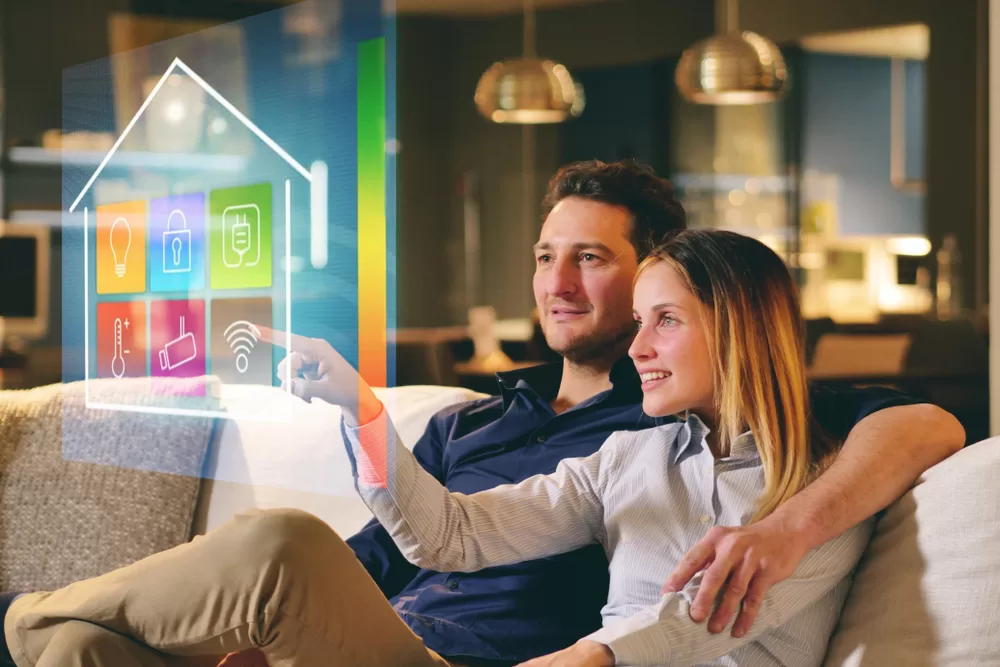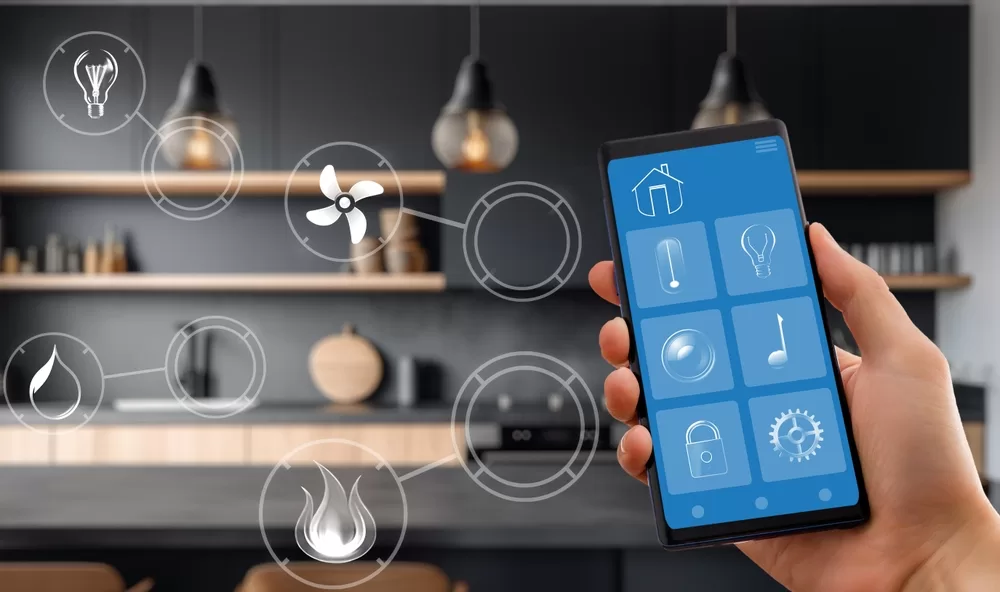In the world of rental property management, the advent of smart home technology marks an important milestone. These innovations are not only changing the way tenants live, they are completely changing the way landlords and property managers approach their roles.

The benefit of these technologies is that everything from daily tasks to tenant communication can be done more smoothly and efficiently. For example, imagine how landlords can easily communicate important information such as eviction notices through these advanced systems, completely breaking away from old ways of doing things.
The rise of smart home technology in rental properties
Smart home technology covers a wide range of devices and systems, from Internet of Things (IoT) gadgets to smart thermostats and advanced security systems. These tools are quickly becoming a necessity in rental properties due to the increasing demand for convenience, efficiency, and security.
Recent data shows that adoption of these technologies is increasing and more and more landlords are seeing their value in property management.
This increased interest in smart home technology is not just a passing trend, but reflects a deeper shift in the rental market. Landlords are now more focused than ever on providing a richer living experience to attract and retain tenants.
The integration of smart devices such as voice-activated assistants, automatic lighting systems, and smart water leak detectors represents a commitment to go beyond mere convenience and provide a cutting-edge, responsive living environment.
These technologies not only cater to modern tenant lifestyles, but also place rental properties at the forefront of the digital age, making them more attractive in an increasingly competitive market.
Benefits of smart home technology for homeowners and property managers
Integrating smart home technology into rental properties offers many benefits and revolutionizes the traditional way property management is done.
The breakdown of the main benefits is as follows:
Automated asset management: Smart systems take over mundane tasks like energy management, leading to savings and environmental benefits. Keep your property in top condition and ensure tenant satisfaction with automated maintenance alerts. Enhance tenant communication: Digital platforms streamline lease agreements and maintenance requests. Important notices are communicated clearly and efficiently. Increased property value and marketability: Properties equipped with smart technology often have higher market values. Attract tech-savvy tenants and give them an edge in the rental market. Managing your properties takes less time and is more efficient. Streamlined processes mean fewer mistakes and better control. Tenant satisfaction and retention: Modern amenities increase tenant happiness. The convenience and security of smart technology leads to more lease renewals.
Introducing smart home technology into rental properties is a strategic move towards modern, efficient and profitable property management, significantly enhancing operational and market attractiveness.

Impact on tenant experience
The introduction of smart home technology has greatly improved the tenant experience in rental properties. These advances provide tenants with an unparalleled level of convenience and control over their living spaces.
Key highlights include:
Personalized climate control: Tenants can easily adjust settings such as temperature and lighting so they can tailor their environment to their preferences. Enhanced security: Smart locks, cameras, and alarm systems allow you to remotely monitor your home, giving your tenants peace of mind. Energy Efficiency: Smart thermostats and lighting reduce your energy bills, making your life more comfortable and cost-effective. Convenience and Accessibility: Being able to control home functions remotely is a game-changer, especially for people with busy schedules or mobility issues. Real-time notifications and alerts: Tenants receive instant updates on maintenance and security issues.
In essence, smart home technology transforms rental properties into safer, more efficient, and more personalized spaces, significantly improving the quality of life for tenants.
Challenges and considerations
Despite the benefits, integrating smart home technology into rental properties comes with challenges. Privacy concerns are at the top of the list, as tenants may be concerned about how these devices impact their personal space.
Landlords and property managers must ensure that technology deployments respect tenant privacy and comply with regulations.
Another factor is the cost and return on investment (ROI) of these technologies. Landlords must balance the initial costs with potential benefits such as higher rents and lower maintenance costs. Keeping up with rapidly changing technology and ensuring system compatibility and security is also an ongoing challenge.
The future of smart technology in rental property management
The role of smart home technology in rental property management is expected to increase dramatically in the future. Future trends suggest even more sophisticated and interconnected systems, which have the potential to reshape rental property management and experiences.
AI-driven property management tools may emerge that predict maintenance needs, optimize energy use, and assist with tenant selection. Integrating virtual and augmented reality into property viewings and renovations has the potential to provide an immersive experience for homeowners and prospective tenants alike.
As these technologies advance, they promise a more efficient, responsive, and tenant-centric approach to rental property management.
The last word
The integration of smart home technology in rental property management represents an important trend with far-reaching implications. These technologies offer many benefits, from enhancing property management and tenant communication to improving the tenant experience.
However, its implementation must be balanced against considerations such as privacy, cost, and technical challenges. As the rental market evolves, smart home technology will play a key role in shaping the future of rental property management.
![]()
Real estate agents will find topics on marketing, technology, and social media, and homeowners will find housing market resources. Be sure to subscribe to “Real Estate in the Digital Age.”
![]() Latest posts by RealtyBiz News (see all)
Latest posts by RealtyBiz News (see all)
Source link
